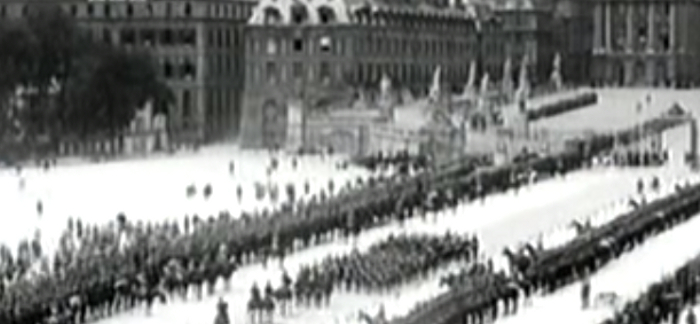The Treaty of Versailles was the settlement that was signed to cease the hostilities of World War I. It was signed in the summer of 1919 when many changes were being seen around the world, including the revolution in Russia. The war had left Europe in ruins and many wanted to see the countries responsible for the war to be punished dramatically. After months of negotiating, the treaty was signed and some pros and cons were generated by that action.
The Pros of the Treaty of Versailles
1. It created an official peace in the region.
Although the war had been over in 1918 when armistices were signed, there was still the threat of war hanging over the region. The Treaty of Versailles brought about a lasting peace that would allow everyone in the region to begin rebuilding.
2. It required disarmament.
The goal of the treaty was to prevent future wars by forcing an almost complete disarmament of Germany. The country would be left with a fighting force that was no more than 100,000 soldiers and it reduced the ability for paramilitary forces to be placed on the streets of the country. Trade in military hardware was also forbidden.
3. It provided Germany certain guarantees.
The treaty had occupation agreements in place along the Rhineland that would help to monitor compliance with the treaty. As long as Germany followed the stipulations of the treaty and didn’t make any aggressive moves, the occupation would begin to remove itself over a period of 15 years and give Germany sole control once again.
The Cons of the Treaty of Versailles
1. It was effectively too harsh to be effective.
Germany was held to be responsible for the vast damages that had occurred during the war. As a cost of 132 billion Marks, or a modern equivalent of nearly half a trillion dollars, the treaty was more about punishing the Germans than really contributing to peace. It drove the German economy into ruins and allowed radical parties to take charge.
2. It wasn’t enforced.
The reparations that Germany was supposed to pay were under a constant state of negotiation for over a decade after the treaty was signed. By the Lausanne Conference that occurred in 1932, an indefinite postponement of reparations was allowed, effectively ending the punishment stage of the treaty that Germany faced.
3. It didn’t include anyone else.
The other principle players in World War I were dealt with under other peace treaties. Only Germany was the target of the Treaty of Versailles and it was signed under pressure. The allied powers were threatening to continue the war with Germany if they didn’t sign the peace treaty and even though Germany didn’t want the terms, they had little choice but to sign.
Had the Treaty of Versailles been completely enforced, it is possible that World War II could have been averted. That observation could also be true had it not been so harsh in the first place. There were some advantages and disadvantages to this historic treaty. By evaluating them, we can all learn from its mistakes and avoid them in the future.




